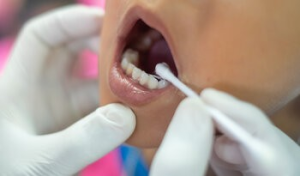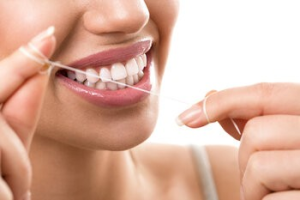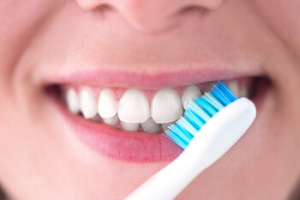Do you have a toothache that won’t go away? You’re not alone. Tooth pain is more than just an annoyance; it can also be incredibly painful and disruptive to your life. Thankfully, remedies are accessible to alleviate the uneasiness linked with dental conditions like tooth decay or gum disease.
From lifestyle changes to simple home remedies, we will highlight everything related to stopping tooth pain and restoring oral health.
Causes of Tooth Pain
If you are experiencing teeth pain, understanding the causes can help you manage the symptoms better. Keep reading to learn the major causes of tooth pain and what are the remedies for temporary pain relief.
Tooth decay
Tooth decay is one of the major causes of tooth pain from poor oral hygiene. When bacteria build, they form a sticky film called plaque on the teeth.
The bacteria feed on this plaque and produce acid, which can cause damage to the tooth enamel. Eventually, the enamel breaks down, leading to a cavity.
If left untreated, a cavity can reach the tooth root and cause tooth pain. Regular brushing and flossing and dental check-ups can help prevent decay.
Gum disease
Gum disease is a painful gum tissue infection that supports teeth. It results from the buildup of plaque, which can deteriorate the gums and eventually lead to tooth loss if left untreated.
Gum infection can cause tooth pain, especially when eating or brushing. Regular dental cleanings and proper dental hygiene can help prevent gum disease.
Tooth Sensitivity
Another common cause of tooth pain is tooth sensitivity. This condition results from the exposure of the tooth root, which can be caused by recessed gums, enamel erosion, or teeth grinding.
Tooth sensitivity can cause discomfort when eating cold, hot, sweet, or acidic foods.
Using toothpaste designed for sensitive teeth, avoiding acidic foods and drinks, and wearing a mouthguard to prevent grinding can help alleviate tooth sensitivity.
Tooth fractures
A tooth fracture can cause tooth pain, especially when chewing or biting. Fractures can occur from a traumatic mouth injury or grinding teeth.
Treatment options depend on the seriousness of the tooth fracture. In some instances, a filling or crown may suffice, while a root canal or tooth extraction may be necessary in more severe cases.
Sinus infection
When this infection occurs in the upper teeth, many people experience tooth pain. You should see a dental professional to get the proper medication and treatment plan to treat this type of tooth pain.
Sometimes, a sinus rinse might be necessary to flush out the infection causing the tooth pain.
Abscessed tooth
An abscessed tooth results from an infection in the tooth root. It can cause severe tooth pain, sensitivity to hot or cold temperatures, and swelling.
If left untreated, an abscessed tooth can develop into a life-threatening condition. Treatment options for an abscessed tooth include antibiotics, root canal therapy, or tooth extraction.
Lifestyle Changes to Relieve Discomfort
 Teeth pain can be a sign of tooth decay or deterioration over time. However, dental pain can also be a result of your overall lifestyle. That’s why making viable changes to your life can help relieve tooth pain. This blog will discuss various lifestyle changes that can relieve pain significantly.
Teeth pain can be a sign of tooth decay or deterioration over time. However, dental pain can also be a result of your overall lifestyle. That’s why making viable changes to your life can help relieve tooth pain. This blog will discuss various lifestyle changes that can relieve pain significantly.
Diet
The food you eat can have a notable impact on your oral health. Sweet and sticky food known for residues can cause unnecessary decay. The acid in your beverage can wear down your enamel and cause tooth sensitivity.
A diet change, including high-fibre fruits and vegetables, reduces cavity-causing bacteria.
Foods high in phosphate, calcium, and natural fat can help to strengthen your tooth enamel. These minerals keep your enamel hard and protect your teeth.
Smoking & Tobacco Use
Smoking tobacco products can significantly impact your oral health. Tobacco smoke reduces blood flow to your gums, leaving them vulnerable to bacteria, making your gum disease-prone.
Quit smoking to maintain healthy teeth and gums. Your dentist can offer helpful tips or suggest a treatment programme to help you quit smoking and prevent the causes of dental pain.
Seek Professional Dental Care
Last, regularly seeking professional dental care can help relieve tooth pain and improve dental health.
Schedule routine dental check-ups, cleanings, and treatments to prevent dental problems and identify any dental issues at an early stage. Additionally, do not hesitate to seek professional help if you experience toothache pain or discomfort for an extended period.
Natural Home Remedies for Toothache Relief
In this section, we’ll look at some easy and simple natural home remedies for tooth pain relief, some of which may surprise you.
Cloves
Cloves have been used for centuries to relieve oral pain. They contain eugenol, which has a numbing effect and helps to reduce inflammation.
You can use whole cloves or clove oil to relieve the pain. Simply place a few whole cloves in your mouth and chew them gently until they release their oil, or apply clove oil directly to the affected area with a cotton swab.
Salt Water Rinse
A saltwater rinse is one of the instant and most effective natural remedies for oral pain. Salt helps to reduce inflammation and soothe soreness.
Combine half a teaspoon of salt with one cup of warm water, swirl the solution in your mouth for 30 seconds and then expel it. Repeat as necessary.
Garlic
Garlic has natural antibacterial and anti-inflammatory qualities that can help to relieve toothache pain.
Crush a garlic clove and add it with a little bit of salt, then apply it to the affected area. You can also chew on a garlic clove for a few minutes to release its natural juices.
Peppermint Tea
Peppermint tea contains menthol, which has a cooling, soothing effect on the gums and teeth.
You can use peppermint tea bags or make your own by steeping a handful of peppermint leaves in hot water. Once the tea has cooled, swirl it around your mouth for some time and then spit it out.
Hydrogen Peroxide Rinse
Hydrogen peroxide has antiseptic qualities that can help reduce inflammation and relieve pain.
Prepare a mouthwash by mixing equal amounts of 3% hydrogen peroxide and water. Gargle with the solution for some seconds and then spit it out.
Cold Compress:
A cold compress can help relieve toothache, particularly if it’s accompanied by swelling.
Wrap an ice pack and apply the cold compress to the affected tooth for 20 minutes. Take a break for 20 minutes before reapplying the ice pack for another 20 minutes. Repeat this process as needed.
Ginger
Ginger has anti-inflammatory and analgesic properties that make it an effective natural remedy for toothache pain.
Grind fresh ginger root and blend it with water to form a paste. Administer the paste to the impacted region and allow it to rest for some minutes before cleansing it with warm saltwater.
Medical Treatments That Help Stop Tooth Pain

In this blog section, we will go through some of the most effective dental treatments that can help to stop tooth pain.
Fillings:
One of the most common causes of dental pain is tooth decay. If the decay has penetrated through the enamel of your tooth and affected the inner nerves and pulp tissue, your dentist may recommend a dental filling.
Fillings help to remove the decayed portion of the infected tooth and fill it with a dental material, such as composite resin or porcelain. This treatment helps prevent further decay and restore the tooth’s structure, thereby relieving tooth pain.
Root Canal Therapy:
If your toothache is caused by a more severe infection in the pulp tissue of your tooth, your dental professional may recommend root canal therapy. This treatment involves removing the infected pulp tissue and cleaning the root canal system of your tooth.
Your dental consultant will then fill the root canal with a dental material and restore the tooth with a crown or filling. Root canal treatment is a highly effective dental procedure that can help relieve pain and prevent tooth extraction.
Extraction:
In some situations, tooth pain may be caused by a tooth that is too damaged or decayed to be saved. If so, your dental consultant may recommend a tooth extraction.
During this process, your dentist will extract the affected tooth and surrounding tissue, helping in pain relief. Although tooth extraction is not always the preferred option, protecting your oral health and preventing further complications is sometimes necessary.
Crowns
If the tooth pain is caused by a fractured or damaged tooth, your dentist may propose fitting a dental crown.
Crowns are tooth-shaped caps that cover the damaged tooth to restore its structure, size, and function. Crowns are usually made of ceramic, porcelain, or metal and are customised to fit your tooth precisely.
Antibiotics:
If your toothache is caused by a bacterial infection in your gums or tooth, your dentist may prescribe antibiotics.
Antibiotics are medications that help to fight bacterial infections. They can help lessen inflammation and pain and kill the infection, helping relieve temporary pain. Always finish the prescribed course as prescribed by your dental professional.
Pain Medications:
If your tooth pain is temporary, your dentist may recommend over-the-counter medications to relieve your pain.
These medications, such as ibuprofen or acetaminophen, reduce inflammation and alleviate pain. It is essential to consult your dental professional before taking any medications to avoid any complications.
Dental Hygiene Habits That Can Prevent Tooth Pain
This section will explore some effective dental hygiene habits you can adopt to help prevent tooth pain.
Brush and Floss Regularly:
Good toothbrushes and flossing habits are the cornerstone of any good dental hygiene routine. Brushing regularly with fluoride toothpaste helps to remove plaque buildup and harmful bacteria from your teeth.
Moreover, consistent use of dental floss can aid in eliminating food debris and harmful bacteria that may be lodged between your teeth, thus diminishing the possibility of developing cavities or gum disease.
Use a Mouthwash:
One of the excellent ways to adapt to good oral health is to add mouthwash to your dental routine.
Mouthwash helps to remove any remaining bacteria and plaque in your mouth, thus reducing your risk of developing decay or gum infection. Furthermore, mouthwash freshens your breath, leaving you with a minty-fresh sensation.
Use a Water Flosser:
Water flossers are an innovative way to promote good dental hygiene. Water flossers shoot a jet of water between your teeth, seamlessly removing any bacteria and plaque buildup. Furthermore, water flossers are an excellent alternative for those who have difficulty flossing traditionally.
Conclusion
Pain and discomfort from a toothache can be overwhelming, but taking the necessary preventative actions outlined above and being aware of potential causes can relieve you. Trust your dentist to help guide you if you’re ever in need, as they will always be able to answer your concerns and provide helpful tips. No one understands aching tooth more than a professional. As such, we encourage those dealing with either minor or major issues to contact us at (02) 9171 0840 if there are any questions or concerns about their oral health. Remember that it is essential to keep on top of dental cleanings for optimal oral hygiene and reduce unnecessary pain down the road.
References
https://www.webmd.com/oral-health/guide/toothaches
https://www.healthline.com/health/dental-and-oral-health/home-remedies-for-toothache

